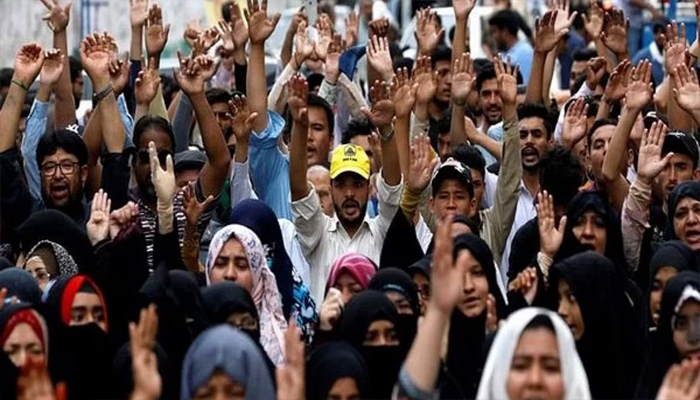Islamabad: After the Senate, Pakistan’s National Assembly also approved the bill regulating public meetings in Islamabad, ahead of Pakistan Tehreek-e-Insaf’s September 8 rally, Dawn reported. The bill is called the ‘Peaceful Assembly and Public Order Act, 2024’.
Speaker Ayaz Sadiq allowed ruling Pakistan Muslim League-Nawaz (PML-N), Danyal Chaudhry, to introduce it as a private member’s bill through a supplementary agenda and then put it for a vote without referring it to a committee after suspending the rules.
However, the passage of the bill saw protests from the opposition with PTI’s Jamshed Dasti pointing out a lack of quorum. But, the speaker declared the house in order after a headcount amid desk-thumping by the treasury members.
The law, which is awaiting the assent of the president, will hand down a three-year jail term to people taking part in an unauthorised public meeting, while those committing an offence during such gatherings will be sentenced to 10 years in jail.
Now, the government will designate Sangjani, a suburb of Islamabad, or any other venue for the meetings, after which a gazette notification will be issued, the bill said, as reported by Dawn.
According to the bill, the deputy commissioner will give permission, and if permission is not granted, then an appeal can be made to the chief commissioner. A review application can be submitted to the home secretary against the decision of the chief commissioner. Even after permission has been granted, the police can disperse the gathering at any time, the bill added.
The district magistrate will have the authority to ban the meeting. The reasons for banning the assembly shall be given in writing, while the aggrieved person may appeal within fifteen days.
“Provided that if the application is not filed earlier than seven days of the intended date of the assembly, the district magistrate may decline the permission if the event coordinator fails to provide justifiable and reasonable grounds for late filing of the application,” the bill read.
